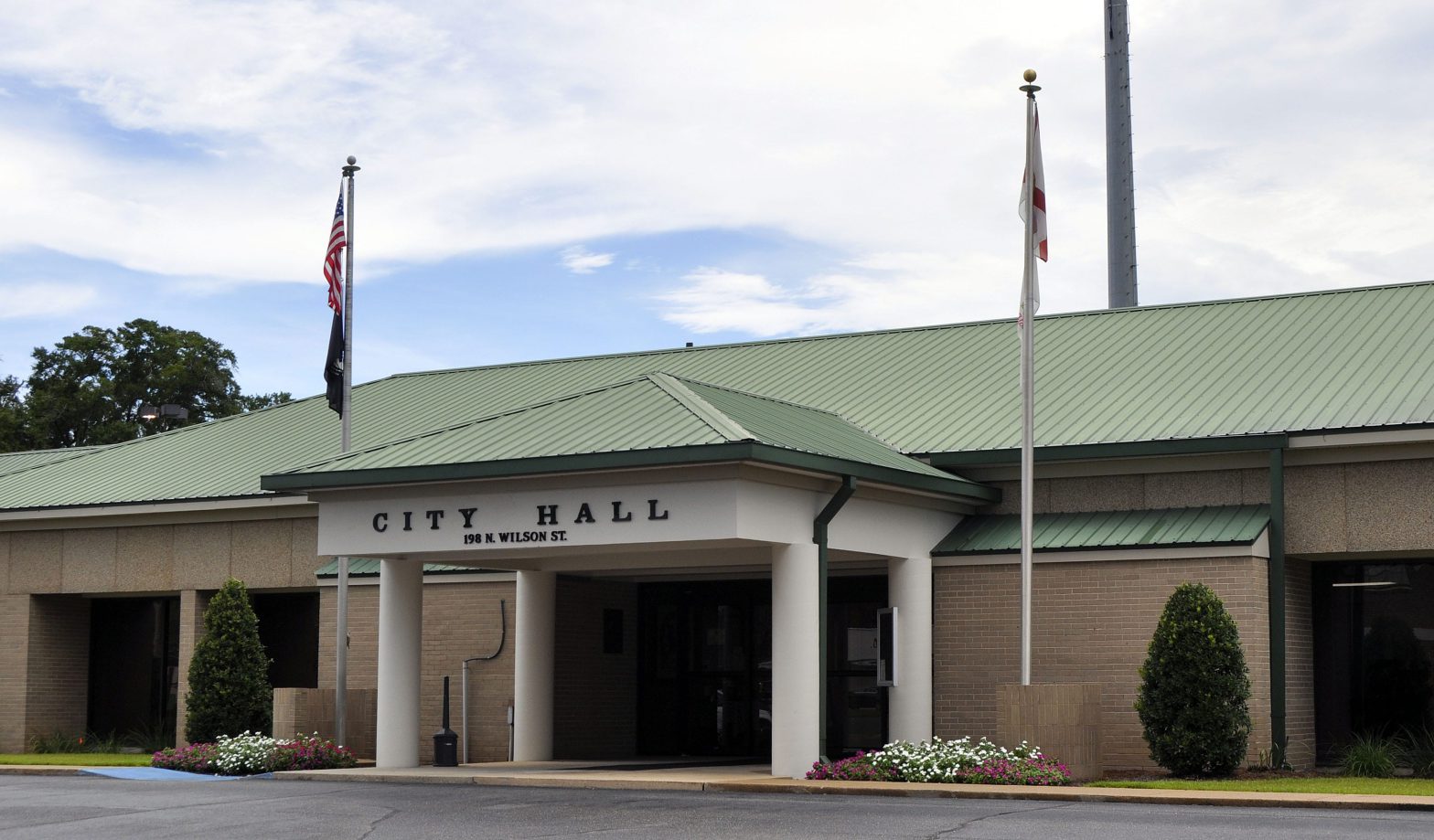![Crestview City Hall
[KAYLIN PARKER/NEWS BULLETIN]](http://127.0.0.1/wordpress/wp-content/uploads/2022/01/ghows-DA-786004e6-a475-6fcf-e053-0100007f7097-46e106a6-scaled.jpeg)
CRESTVIEW — Mobile vending might sound odd to some, but in Crestview it’s defined as "the selling of any product out of any self-propelled or non-self-propelled vehicle including carts, trucks, trailers and movable stands and kiosks."
Proposed changes to the existing ordinance regulating mobile vending would allow the city to charge licensing fees on things like tent sales, firework stands, Christmas tree stands, road side or "garage" type sales, fruit stands, mobile food trucks, hot dog carts, and other vendors.
Growth Management Director Teresa Gaillard presented the amendments to the city council Monday, Oct. 15, and the council discussed it at some length.
But by the end of the special workshop meeting, Crestview officials had yet to post the ordinance online.
Documents were provided to each council member, the mayor and department heads present at the meeting, but the press and the public were left to wonder what the ordinance might say.
This, according to Attorney John Bussian, was clearly a violation of the Florida Sunshine law.
He said based on what was described about the special workshop meeting, the city violated the open meetings law by not posting the proposed ordinance before the meeting.
“Florida’s Sunshine Law has always been read liberally to promote government transparency and not narrowly to deny the public’s right to know,” Bussian said.
According to City Clerk Elizabeth Roy, the council announced the meeting on Oct. 8 at the regular city council meeting and published the agenda online Oct. 11, which meets the seven day requirement stated in Florida Statutes. Roy also said that because Monday's meeting was a special workshop, the city was only required to give a 24-72 hour notice.
However, the issue lies with the ordinance documents that were left out of the agenda. Roy said the city was not required to publish the ordinance packet.
“We don’t have to publish all the information,” Roy said.
Although Sunshine Laws are subject to interpretation, Bussian said this statute is clear.
“The spirit of the Sunshine Law clearly commanded the city to release the draft ordinance before the workshop,” Bussian said. “The only way this occurs is when local government senses that neither the public nor the press will challenge their refusal to release documents to be discussed at a public meeting.”
For any meeting except in the case of emergency meetings, Florida Statute 120.525 in Chapter 120 "Administrative Procedure Act" states the following:
"The agenda, along with any meeting materials available in electronic form excluding confidential and exempt information, shall be published on the agency’s website. The agenda shall contain the items to be considered in order of presentation. After the agenda has been made available, a change shall be made only for good cause, as determined by the person designated to preside, and stated in the record. Notification of such change shall be at the earliest practicable time."
According to Bussian, this violation could be addressed with a civil law suit and an order barring the city from doing this in the future.
“The hope is the city can learn from its mistake,” Bussian said.
Florida Sunshine Laws are designed to give access to public government meetings and documents in the state of Florida.
This article originally appeared on Crestview News Bulletin: 'Florida’s sunshine law has always been read liberally to promote government transparency'
